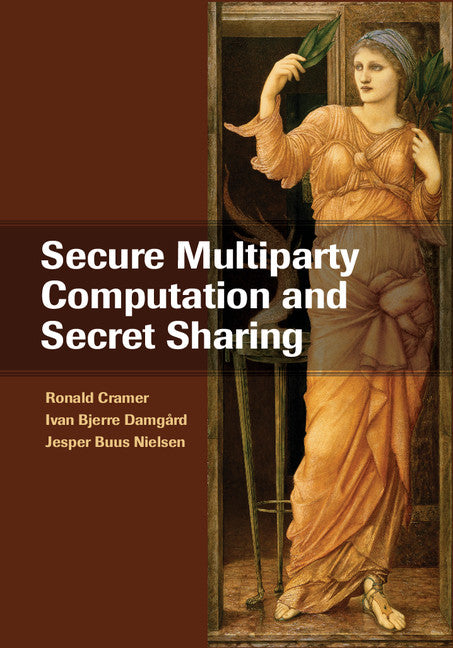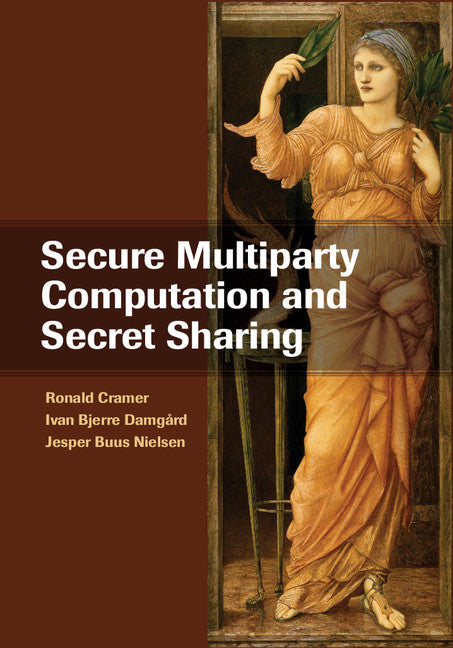Freshly Printed - allow 8 days lead
Couldn't load pickup availability
Secure Multiparty Computation and Secret Sharing
This book provides information on theoretically secure multiparty computation (MPC) and secret sharing, and the fascinating relationship between the two concepts.
Ronald Cramer (Author), Ivan Bjerre Damgård (Author), Jesper Buus Nielsen (Author)
9781107043053, Cambridge University Press
Hardback, published 15 July 2015
381 pages, 9 b/w illus. 41 exercises
26.2 x 18.6 x 2.4 cm, 0.86 kg
In a data-driven society, individuals and companies encounter numerous situations where private information is an important resource. How can parties handle confidential data if they do not trust everyone involved? This text is the first to present a comprehensive treatment of unconditionally secure techniques for multiparty computation (MPC) and secret sharing. In a secure MPC, each party possesses some private data, while secret sharing provides a way for one party to spread information on a secret such that all parties together hold full information, yet no single party has all the information. The authors present basic feasibility results from the last 30 years, generalizations to arbitrary access structures using linear secret sharing, some recent techniques for efficiency improvements, and a general treatment of the theory of secret sharing, focusing on asymptotic results with interesting applications related to MPC.
Part I. Secure Multiparty Computation: 1. Introduction
2. Preliminaries
3. MPC protocols with passive security
4. Models
5. Information theoretic robust MPC protocols
6. MPC from general linear secret sharing schemes
7. Cryptographic MPC protocols
8. Some techniques for efficiency improvements
9. Applications of MPC
Part II. Secret Sharing: 10. Algebraic preliminaries
11. Secret sharing
12. Arithmetic codices
Part III. Back Material.
Subject Areas: Computer security [UR], Mathematics [PB], Coding theory & cryptology [GPJ]


